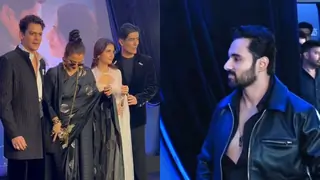Thanks for the PM and the posting on riyaaz!
I totally feel that riyaaz is a must for people who are serious in singing/playing instrument. If you fail to do riyaaz, your voice will have a hard time holding a note and will sound more tired. Doing riyaaz is like stretching your muscles before doing serious exercise or playing a sport. Stretching your body and muscles allows your muscles to fully prepared for any activity. When your body is not warm up, your muscle become stiff when any chance of great physical activity comes up.
This is very true with singers. We are just talking general sense here. Let me give you a raga example.
Punjini-ji mentioned the example of a raga with seven swaras (this is called a sampurna raga). You are less likely to miss a note with a seven swara raga, than a five note raga (audava raga)!
Imagine Malkauns! Malkauns is an audava raga where one wrong sur can really mess up the devotional/fierce mood of this raga. The notes are "S g m d n S'." In one essay I wrote many years ago, I said....
Add r by accident and it becomes a Bhairavi cousin
Add R by accident and it becomes a Bhimphalasi/Kaunsi cousin
Add G by accident and you risk entering Jog territory
add M by accident and the entire support of this raga sounds unstable
Add P by accident and it sounds as dull as seeing a scorpion without its stinger! Bilqool Dheela!!
Add D by accident and it sounds like bad version of Bhinna Shadja
Add N by accident and you inevitably enter the unwanted state of Candrakauns!
To do audava ragas, whether you are playing them on an instrument or singing them, require island hopping or notes! Riyaaz is needed to not only hitting the right notes, but to add expression, dynamics, and modulations to prevent sounding mechanically. Remember Nihira? I didn't know anything about her pre-challenge 2005. Besides her Chalka re, she sounded mechanical at first. But with her near-pakka sur, she sounded more beautiful than ever with the right amount of expression and improvement week after week. Remember, Rahe Na Rahe Hum? The song that haunts everyone as she was eliminated??
Point? Riyaaz is necessary!
Edited by kishore_bhakta - 19 years ago
































